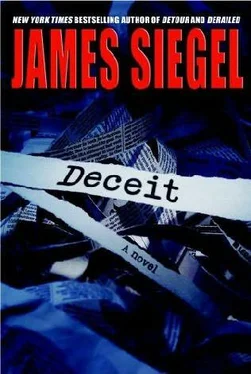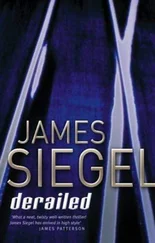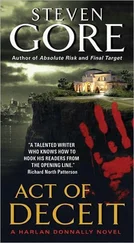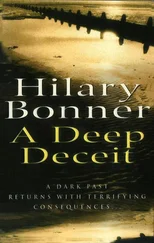“I don’t know any stories, Dennis.”
“Come on, man. He wants a story.” The soldier had woken up and joined the chorus. “Poor guy’s got no tongue. Don’t you know any bedtime stories?”
“No.”
“What about ‘Goldilocks and the Three Bears’? Shit, everyone knows that one.”
Dennis’s eyes fluttered open, fixed on my face.
“Okay,” I said. “Sure. I know a story. A true story.”
“Shoot,” the soldier said.
“It’s a ghost story.”
“I thought you said it was a true story?”
“It is.”
“Hear that, Dennis? A true ghost story.”
“There were these men,” I began. “These doctors-”
“When?” the soldier interjected. “When are we talking about? Now ?”
“No,” I said. “Not now. 1945.”
The first day they arrived, they gathered at the Gokoku Shrine.
Partly because it had already become the stuff of legend. That wasn’t surprising to them; a kind of witchcraft had been unleashed upon the world. It needed its totems and idols.
They stared at the granite tombstones, and sure enough, there were shadows seared into the stone. And yes, okay, if you squinted and stared at it long enough, they could, in the right light, appear to be the shadows of people.
Of ghosts.
There were other shadows. On the roof of the Chamber of Commerce building, imprinted onto the tower of the Chugoku Electric Power building, and two of them on the only wall of the temple left standing. But it was the shadows on these tombstones that had captured the popular imagination. Why not? That imagination had been geometrically altered, expanded beyond all previous comprehension.
One month ago this had been a city of 300,000, a military industrial hive.
Now there were six buildings left standing.
What the initial shockwaves hadn’t obliterated, the resultant fires had. The population had been cut by two-thirds-not neatly, but in excruciating and distinct stages that were only now making themselves known, if not actually understood.
They stood on the verge of a voodoo science, although it was more of a precipice, since there was nothing but a massive void of knowledge.
They were here to fill it.
Some of them had been in New Mexico, keeping a wary eye on the technicians and scientists and plain laborers who worked directly with the stuff they’d dubbed Kryptonite, in a not altogether playful allusion to the element that could bring even Superman to his knees. Everyone knew it was insidious stuff-it was a matter of degrees.
How much, how long, how often?
They considered themselves snake charmers trying to lull the cobra that Oppenheimer and others had coaxed out of the bottle. You danced around the danger and hoped you wouldn’t get bit.
Or maybe cobra didn’t do it justice-more like a dragon. That’s what the techies called it when they put together the fissionable material by hand-tickling the dragon. Hoping you didn’t get burned. One did-a physicist named Louis Fruton, cooked to death in 1945 by a sudden radioactive burst.
When they’d dropped Trinity at ground zero, a miniature sun had lit up the early morning sky-two thousand times hotter than the one the earth actually circles. The seven-ton drop tower had incinerated into air. Grains of sand had fused into glass. The first mushroom cloud in history had spiraled up to the heavens and sent a soft shower of white snow fluttering down on the army ants below.
The second mushroom cloud in history came three weeks later over the military industrial city of Hiroshima.
The snake was out of the bottle; its poison was in the blood.
They’d first gathered on Okinawa-the army doctors from Los Alamos and Walter Reed and Rochester, and even a few from the Mayo Clinic.
They compared notes and rifled through the existing literature. There wasn’t much, and what did exist was laughably ill informed. They waited around a lot.
The war ended on August 13, but they weren’t allowed into Japan until late September.
There was a seventeen-square-mile laboratory waiting for them inside Japan-160,000 living corpses that needed to be poked, prodded, X-rayed, documented, and autopsied. Mostly watched.
They were biologists studying a heretofore unknown species.
The world’s first survivors.
As doctors, they’d seen the human body attacked with all sorts of things-bullets, knives, shrapnel, gases, poisons. This was something else-bodies bombarded with neutrons, beta particles, and gamma rays.
There seemed to be three distinct stages.
First, the people who died in the first few hours or days.
For these cases, they had to rely on the observations of the mostly bewildered Japanese doctors. Seemingly uninjured people had mysteriously succumbed, dropping dead on street corners, in their beds, while riding their bicycles. The doctors guessed that gamma rays had degenerated their very nuclei-literally broken down their cell walls.
The second stage seemed to announce itself about two weeks after exposure.
The victims’ hair fell out. They were wracked with severe diarrhea, uncontrollable shaking, and spiraling temperatures of up to 106 degrees. Their white-blood-cell counts plummeted; their gums became bleeding sores; their open wounds festered and refused to heal. Most who exhibited this latter stage of radiation sickness died.
Those that didn’t awaited a third stage, where the body overcompensated, white-cell counts soaring to make up for the internal devastation. Infections set in-generally of the lung cavity-that came and went, lingered and regressed, spared some and took others.
There was a fourth stage, of course.
This was the stage they debated back and forth, whispered about, ruminated on, fueled by thimblefuls of warm sake-not bad, this Japanese hooch-the stage they could only venture guesses about since they wouldn’t, couldn’t know for years.
What would happen after?
After they rebuilt the city, after the shadows faded on the tombstones and the temple wall, after they all went home. What then?
They could guess.
The first glimmers of genetic mutation were beginning to emerge. Radiation not only lingered in the air; it lingered in the blood.
They watched and observed as some of the survivors gave birth.
As babies emerged with stunted arms and missing fingers and cleft tongues, or with mongolism-though frankly it was hard to tell with Jap babies, being that they already looked half-Mongoloid. Then there were the cases of leukemia, of puzzling and lethal blood disorders.
An unofficial ad hoc quarantine began.
The Japanese themselves began to shun the survivors, as if they were a painful reminder of their national shame. As if these burned and scarred and disfigured people were walking metaphors of their own disfigured country. Hiroshima and Nagasaki reduced to rubble and whole sections of Tokyo scorched from the incendiary bombs of the B-52s.
They weren’t employable, these habakusha-radiation survivors. They were always getting sick and missing work. They were dying in droves. They were unpleasant to look at.
No one complained when the army doctors shut some of the survivors away. Not even the survivors. They were tainted, poisoned, a new kind of untouchable. Better for us, and better for them, the doctors figured.
They could more closely monitor the survivors, have a better chance to keep them alive-those they could. They took their blood, X-rayed their bones, checked their stools. They gathered greedily around the autopsy tables to see what they could find.
Slowly, here and there, they began to experiment.
At first, only on the ones barely clinging to life. The ones at death’s door. Feeding them certain diets or withholding food entirely. Bombarding them with X-rays to see if you could fight fire with fire.
Читать дальше












